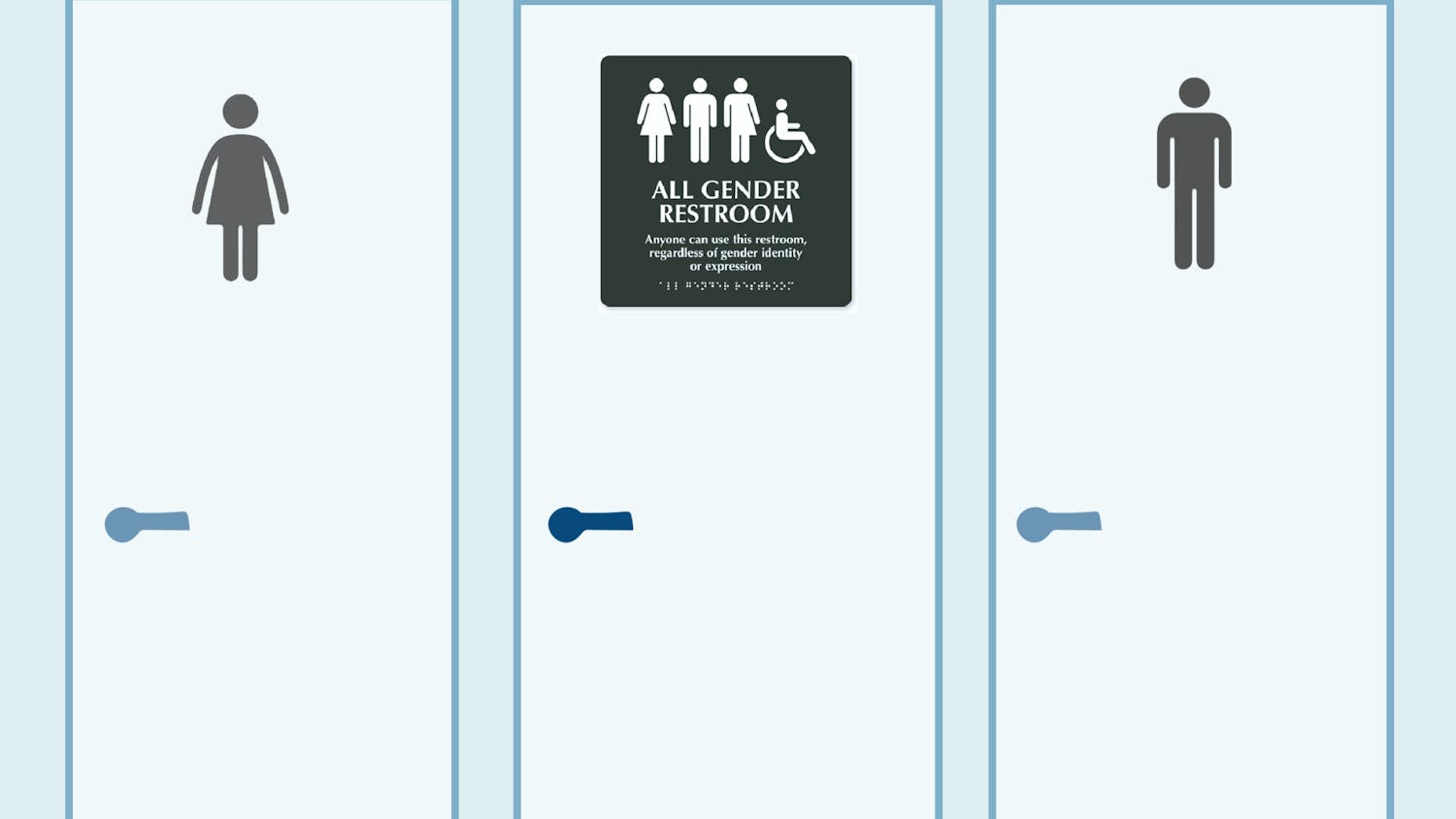Sept. 23 was Bi Visibility Day. I had planned to write about it and come out. And then... I didn’t. I’ve been feeling immensely guilty ever since. Obviously, the cat’s out of the bag now. But why is it that so many bisexuals stay in the closet much longer and at higher rates than if they were gay?
People don’t believe us. One of my first memories of the term came from “30 Rock” joking that bisexuals didn’t exist. This was an idea I repeated and held for years after. Views are shifting, but according to CBS News, researchers found that 15 percent of Americans still admit to disbelieving bisexuality.
Within my experience, bisexuals generally aren’t accepted. According to a survey from Glamour, 63 percent of women say they wouldn’t date a man who had previously been with another man. As shown by research from the National Intimate Partner and Sexual Violence Survey out of the Center for Disease Control and Prevention, bisexual women are more likely than lesbian or straight women to experience violence or domestic abuse. Bisexual men are more likely than straight men to suffer from this as well.
This extends to queer spaces. One common idea is that bisexuals who are not currently dating anyone of the same sex aren’t “queer” (84 percent of bisexuals are dating the other sex, according to Slate, but that’s a numbers game.) This is clear erasure. There are also problems such as the gay flag being the catchall for LGBTQ+ community, when it was created for white gay men and still evokes that image. It still stands as a persistent reminder that bisexuals and people of color in the community have a long fight ahead of them in gaining recognition and escaping erasure. Bisexuals also catch flack because of the stereotype that bisexuals will not date trans persons, when in reality, the percentage of cisgender bisexuals who would date a trans person is higher than any other cisgender group, according to research done by the Journal of Social and Personal Relationships. It also doesn’t address ingrained transphobia.
There’s very little positive representation of bisexuality. There’s a number of problematic tropes in our culture: no bisexuals, straight-to-gay, depraved bisexual, or the idea that bisexuality equals polyamory. Not that polyamory isn’t cool if you're into it. But outside of characters Oberyn Martell of “Game of Thrones” or Rosa Diaz of “Brooklyn Nine-Nine,” I can’t think of any bisexual characters in mainstream media that aren’t problematic or played for laughs. And that’s a shame, because a comedy podcast is why I finally realized, at 21, I’m bisexual, and it's okay to identify that way.
I remember in high school I asked a guy out. After he said yes, I immediately chickened out. I once stopped hooking up with a guy to drive home yelling at myself like I’d done something wrong.
After both instances, I still assumed I was straight and didn’t have any unchecked feelings, and that’s so predictable. I know I shouldn’t feel guilty, but I feel as if I’ve lied to a lot of people. I know that I’m still privileged. I don’t want to take away from anyone’s struggle or co-opt one that isn’t mine. But that is exactly the type of thought that kept me closeted. Identity is a journey. Don’t diminish your own. Don’t let yours be diminished.
Levi Cooper is a UF English senior. His column appears on Wednesdays.






